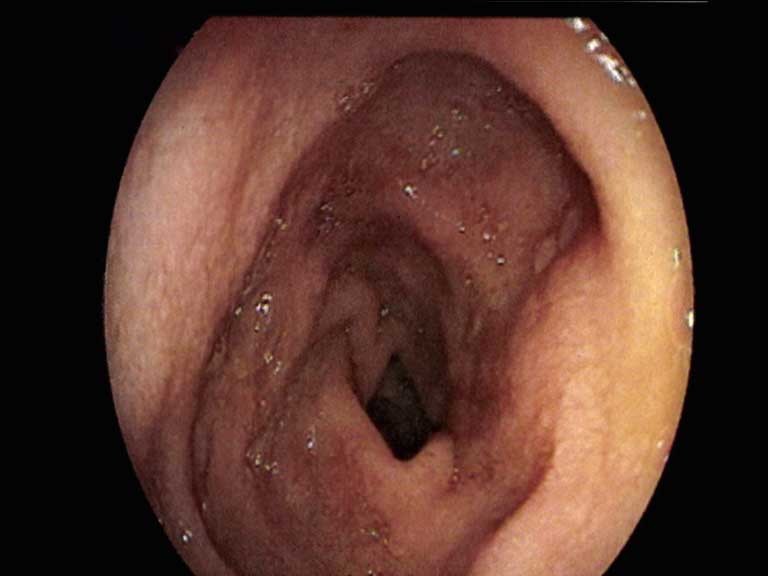Gastroscopy
A gastroscopy, also known as an upper endoscopy or the tongue-busting OesophagoGastroDuodenoscopy (OGD), is a medical procedure used to examine the inside of the upper digestive tract, including the oesophagus, stomach, and duodenum (the first part of the small intestine). It is typically recommended for individuals with symptoms such as heartburn, abdominal pain, difficulty swallowing, or blood in the stool. It is also used to diagnose the cause of gastrointestinal bleeding, and to evaluate for stomach or oesophagus disorders such as ulcers, strictures, or Barrett’s oesophagus.

During the procedure, the patient is sedated and a thin, flexible tube with a light and a camera on the end called an endoscope is inserted through the mouth and into the upper digestive tract. The endoscope allows the gastroenterologist to view the inside of the oesophagus, stomach, and duodenum and detect any abnormalities such as ulcers or abnormal growths.
If any abnormalities are found during the gastroscopy, they can typically be biopsied or removed during the same procedure. The procedure usually takes about 15 to 30 minutes.
Before the procedure, the patient is usually instructed to fast for several hours or follow a special diet, and to stop any medications that may increase the risk of bleeding. After the procedure, the patient may experience mild sore throat or bloating, but these symptoms usually subside within a day or two.
Gastroscopy is a safe and effective way to diagnose and treat various upper gastrointestinal tract disorders. It is also a useful tool for the detection of early stage cancer in the oesophagus, stomach, and duodenum.
Expectations
The outcome of surgical treatment varies and depends on various factors such as the stage and location of the cancer, the overall health of the patient and the expertise of the surgical team.
Recovery from surgery can take several weeks or even months, depending on the extent of the surgery. Pain and discomfort are common after the surgery, and patients will likely need to follow a special diet to help the healing process. They will also need to have regular follow-up appointments with Dr Lorenzo to monitor their recovery.

